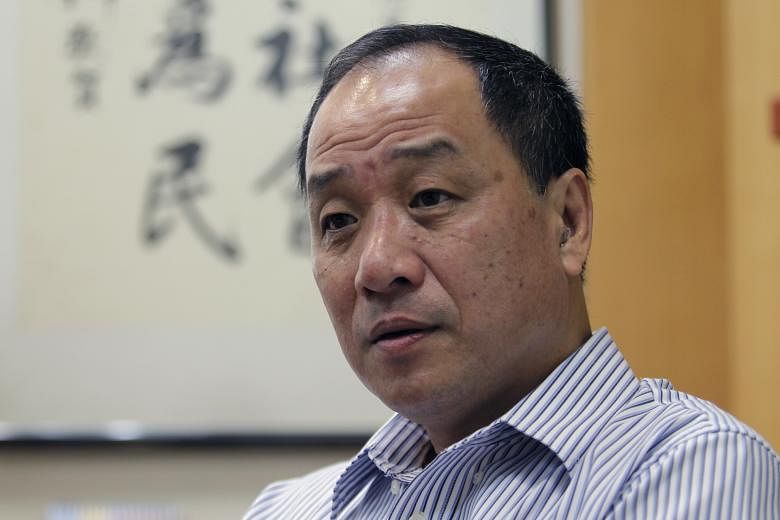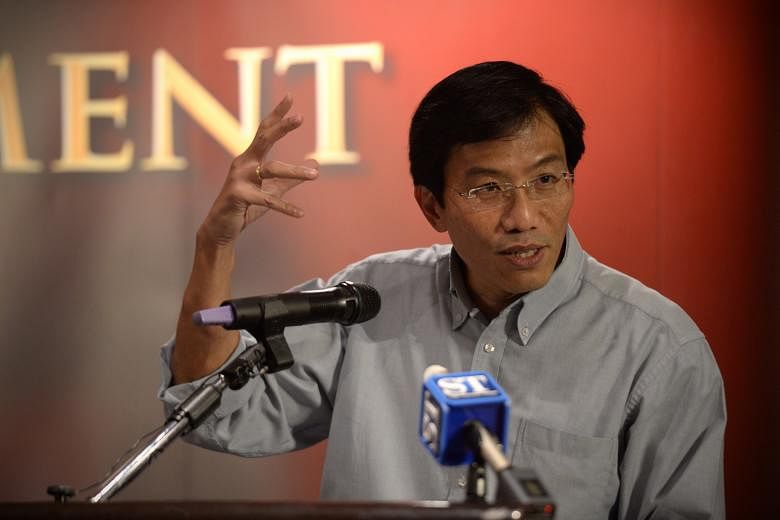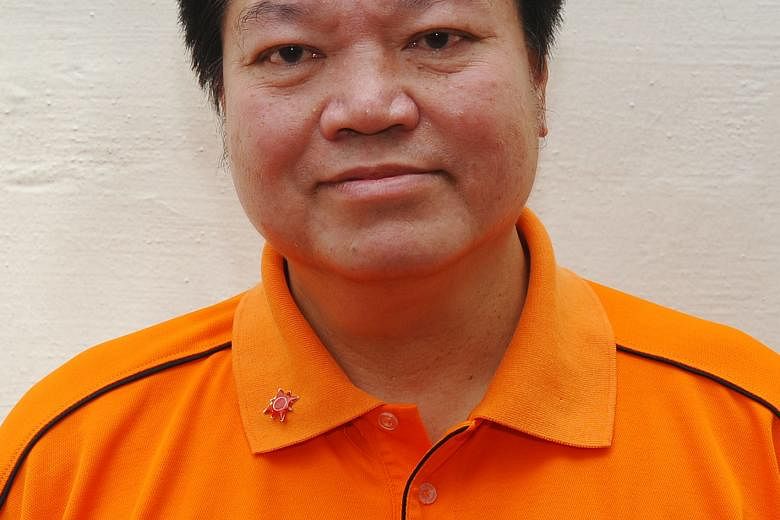'Don't rule out' new kids on the block
Up to nine opposition entities may contest the next polls, which may lead to more three-cornered fights
As the next general election (GE) draws nearer, voters and political observers alike have been considering one question: Can the opposition win another Group Representation Constituency (GRC) and claim the scalp of another People's Action Party (PAP) minister?
After all, the Workers' Party (WP) won in Aljunied GRC in 2011 and turfed out two Cabinet ministers. Since then, the party has won two by-elections on the trot and has an unprecedented seven elected seats in Parliament.
But not all opposition parties are made the same. The seven seats and by-election wins belong to the WP alone, leaving the others to play catch-up.
Among them, the Singapore Democratic Party (SDP) has sought to do so by steering clear of the legal troubles it used to be entangled in, focusing on producing policy papers regularly to convince the public it is more than just a party of protest. It is also the only party, so far, to have officially kicked off its election campaign, with a launch at the Holiday Inn Atrium hotel in January.
Other parties have not fared as well since the last polls.
The National Solidarity Party (NSP) has had a revolving door of secretaries-general - four in the same number of years - with the latest, Mr Tan Lam Siong, quitting the post after less than five months, although he remains with the party.
And the Singapore Democratic Alliance (SDA) faces the formidable prospect of recovering from a 0.6 per cent vote share in the 2013 Punggol East by-election - the lowest percentage recorded in an election since independence.
The Singapore People's Party (SPP), led by opposition stalwart Chiam See Tong, and Mr Kenneth Jeyaretnam's Reform Party (RP) are still trying to build party brands beyond their well-known secretaries-general.
Then there are fresh faces. The long-dormant Democratic Progressive Party (DPP) is back with new blood, while the Singaporeans First Party (SingFirst) was launched in May last year. Both parties are headed by politicians who contested the last GE as members of different parties.
If opposition veteran Goh Meng Seng's application to register the People's Power Party is approved, nine opposition entities will contest the next polls. It will be the highest number since independence, beating the previous record in 1984 of eight. A splintered opposition could well mean more three-cornered fights and, indeed, party leaders are now less committed to the notion of opposition unity to avoid splitting the vote.
DPP secretary-general Benjamin Pwee says: "I take it as a given that more than two parties will contest a constituency. But the Punggol East by-election has shown voters are savvy enough to back the most credible alternative candidate."
NSP president Sebastian Teo, too, does not rule this out. He says: "We're not going to go for a three-cornered fight, but we are also not afraid it it happens."
As an unspoken rule, parties get first dibs on the constituencies that they contested in the last election. But this has been complicated by high-profile defections since then.
For instance, lawyer Jeannette Chong-Aruldoss, who contested in Mountbatten in 2011 on an NSP ticket, switched to the SPP earlier this year and is still interested in the single-seat ward.
Will the party or candidate have right of way?
Similar situations could arise in constituencies such as the Tampines and Bishan-Toa Payoh GRCs.
Conflicts such as this are usually sorted out during backroom dealings before the polls. But the fragmentation of parties could make such negotiations harder to organise this time around.
Indeed, in the run-up to the 2011 General Election (GE2011), there were murmurings of the WP going its own way. WP chief Low Thia Khiang did not go to the last two meetings of opposition parties to divvy up constituencies in 2006 and 2011, he sent chairman Sylvia Lim in his place. But a source close to the party says Mr Low in the past had always turned up at the meetings in any case only as a matter of courtesy, and not to bargain.
In the end, which opposition party is standing where may be moot, as some voters simply choose them as an anti-government protest, as was the case in 2011 amid a wave of discontent.
Institute of Policy Studies (IPS) senior research fellow Gillian Koh reckons, though, that the Government's actions since then - such as moving to cool the property market and making healthcare more affordable - could affect protest votes this time around.
Singapore Management University (SMU) law don Eugene Tan says such voters can be game-changers, and form a segment of the swing voters who can make a difference in seats where the PAP has a slim margin.
And their opinion of the Government will certainly have a bearing on whether the opposition can build on its historic win in Aljunied and conquer another GRC.
Associate Professor Tan thinks this is "certainly within the realm of possibility. If anything, after Aljunied GRC, the opposition has broken a longstanding psychological barrier that GRCs are unwinnable".
READY TO GO
FOR the WP, the biggest player on the opposition field, much work has been put in preparing the ground and building up party structures. Party members say preparations for the polls started after the last elections.
The WP's biggest problem, then, may well be the recurring accounting and management troubles at its Aljunied-Hougang-Punggol East Town Council (AHPETC).
But even as its leaders have been busy fighting fires there, walkabouts have been under way and the party has also formalised its grassroots structures as it plans for growth and expansion outside its current areas.
From its previous loosely organised volunteer-system, the party now has a centralised WP Grassroots Committee, which oversees its division teams and takes charge of big events, such as the WP SG50 dinner planned for Aug 23.
It has also taken steps to ensure its residents know they can turn to the party when in need.
The WP Community Fund, run independently and funded by
donations, was set up in June last year to provide financial support to residents in its wards.
The party has also set up more legal clinics - such as in Eunos and Hougang - to provide advice to its residents, now that it has more lawyers in its midst.
Meanwhile, its WP Youth Wing has supplied the party with a steady stream of potential candidates, setting it apart from many other opposition players that have run into problems while planning for leadership succession. With these pieces in place, the party is likely the most ready of the opposition players for the next elections.
Yet, analysts say AHPETC's problems could figure for the WP at the ballot box. The WP-run town council's accounts have not been given a clean bill of health since the party took over in 2011.
In the past four years, AHPETC has also run into problems for running illegal trade fairs and clashed with hawkers and the National Environment Agency over the cleaning of food centre ceilings.
Dr Koh of the IPS says "it will be worrying if the value of integrity is downplayed, or cast aside by voters", and she hopes the matter will be dealt with soon by the authorities as there are voters who "do not yet feel that they have a clear picture about what has happened".
SMU's Prof Tan, though, thinks the issue is "unlikely to cause a significant dent in the WP's electoral fortunes", and says it may, in fact, be seen by some voters as a "political attack on the WP".
In the party itself, there seems to be less apprehension about how Aljunied, Hougang and Punggol East voters will react, compared with those voters in non-WP areas.
A WP member says: "I wish people in other areas would ask me about the town council during walkabouts, so I can explain to them."
Meanwhile, there is concern among opposition ranks that these issues could affect voters' confidence in opposition parties running town councils.
The SDP has made a pre-emptive move, putting out a paper on how it would manage town councils if it were to win in the next elections.
SDP secretary-general Chee Soon Juan denies that this has anything to do with the WP's troubles, though, and says the party just wants to be prepared.
The WP declined to comment for this Insight, saying it is not ready to share more information.
Other than the WP, the SDP has also emerged as one of the more prepared parties this time around.
Ever since Dr Chee emerged from bankruptcy in 2012 - after reaching a settlement over damages owed to then Senior Minister Lee Kuan Yew and then Prime Minister Goh Chok Tong for defaming them during the 2001 GE - the party has been pushing ahead with its rebranding efforts and poll preparations.
In line with this more professional image, it has put out policy papers and printed training booklets for its volunteers, which include instructions as detailed as what to wear, where to pin their name tags, and how to say "hello" to residents during door-to-door visits.
But while it prepares for its first elections with its own secretary-general back on the slate, analysts are not so sure his return will be a boost.
Political scientist Derek da Cunha says of Dr Chee: "His recent attempts to refurbish his image to make him seem more politically emollient - and, therefore, make the SDP more electable - does not airbrush out his... conduct since he entered the political stage more than two decades ago in 1992."
But political watcher and blogger Alex Au has a different take. He found that Dr Chee had well thought-out ideas and, recalling a 2006 interview, says: "I came away from that interview rather impressed, especially when compared with other interviews with other leaders from other parties, which I will not name."
Another possible ballot-box factor is the party's focus on human rights. Mr Au says among those in the thinking classes, the SDP is seen as a party that delivers value, in terms of pushing for civil rights.
This, though, could cut both ways, with liberals supporting the party, but conservatives, such as those against gay rights, distancing themselves.
OTHERS IN THE OPPOSITION CAMP
THE NSP is not just having difficulty in finding a secretary-general with staying power, but also struggling to hold on to its members.
Its troubles began with Mr Goh's departure shortly after the 2011 polls. Last year, its breakout star of the last election, Ms Nicole Seah, left the party and relocated to Bangkok. This year alone, five central executive committee members and one party member quit.
The resignations fuelled murmurings of rifts between the young members who want new ways of doing things and the old guard. But NSP president Mr Teo shoots down such talk, pointing out that the recent line of secretaries-general have all been new members.
"In what other party can new blood take up leadership positions so quickly? We are serious about renewal and don't hold the young ones back," he says.
The NSP will not field as many candidates as the last time around, when it was the opposition party with the largest slate - 24 hopefuls.
Mr Teo says: "We felt a duty to allow as many Singaporeans as possible to vote, but there are more political parties now to fill in."
The party is keen to contest Tampines, Chua Chu Kang and Marine Parade GRCs, as well as the single seats of Whampoa, Mountbatten and Pioneer. But Mr Teo says it may just stand in two GRCs if resources prove to be limited.
As for the Reform Party (RP), moving away from personality-based politics and out of the shadow of party founder J.B. Jeyaretnam is proving to be a challenge: The late Mr Jeyaretnam still features prominently in RP's outreach brochures even though his son, Kenneth, has been leading the party since 2009.
While it was the first to declare its candidates in the lead-up to GE2011 - unveiling prize catches such as Mrs Chong-Aruldoss and SAF Merit Scholarship recipient Tony Tan - it is flying under the radar this time around.
"We're not going to unveil our candidates early," says Mr Jeyaretnam, noting the strategy backfired when would-be candidates jumped ship, such as Mrs Chong-Aruldoss and Mr Tony Tan to the NSP. But he promises that RP is seeing "a lot of revival (and) a lot of inflow of volunteers and potential candidates".
Over at the SPP, Mr Chiam has not been able to build up his party despite being Singapore's longest-serving opposition MP, holding his Potong Pasir seat for 27 years before vacating it in an unsuccessful bid to win in a GRC. His wife, Lina, is now a Non-Constituency MP after failing to hold her husband's seat by a wafer-thin 114 votes.
Over the years, he has been mired in disagreements with people once touted as his successors.
The IPS' Dr Koh believes such internal struggles will give voters pause: "They will generally feel that the ability to self-manage provides some indication of the ability to manage something larger than oneself."
But SMU's Prof Tan points out that Singaporeans "may not even be aware of the internal friction".
If there is one party that needs a win to stay relevant, it is the SDA. The party is determined to avoid multi-cornered fights - and a repeat of the Punggol East by-election, where its secretary-general, Mr Lim, came last out of four contestants. It is focusing on Pasir Ris-Punggol GRC, "where we've been walking the ground since before the 2006 elections", he says.
Mr Lim points to his team's frequent visits to Pasir Ris and Punggol, including one last week to Pasir Ris One, the latest Design, Build and Sell Scheme (DBSS) development to make the news because of residents' complaints. When asked about the possibility of the WP expanding into Pasir Ris Punggol, he says: "It is never our concern whether they come in or not."
But the Facebook page of the Singapore Justice Party - a component party of the SDA - warns: "We shall not enter into any three corners fight, as long as other opposition parties are not coming into the territories that we have contested before and are continuing to working the grounds."
However, Dr da Cunha gives a scathing assessment of the state of play, noting there are only "one or two well-known names" in some opposition parties.
"This might be immaterial, as being 'relatively well-known' does not necessarily translate into a national prominence on a scale sufficient to carry the vote ahead of the PAP."
He adds: "Regrettably, there are some opposition candidates who are nationally prominent largely in their own minds. You cannot stop them from having such a lofty regard for themselves, even if it is not shared by most voters."
THE WILD CARDS
Opposition parties which did not contest the last GE have been trying to raise their visibility. They include a revitalised DPP - formed in 1973 and dormant in GE2011 - and SingFirst. Their names may not be familiar, but they are fronted by candidates whose names may ring a bell. Mr Pwee - arguably the DPP's most high-profile name - was once seen as a protege of Mr Chiam.
SingFirst's Mr Tan, a former civil servant, made a run during the 2011 presidential election and was part of the SDP's Holland-Bukit Timah team in GE2011.
Despite their novelty, SMU's Prof Tan expects these parties to give the more established ones a run for their money. He tells Insight: "With a younger electorate, voters will be prepared to give these new kids on the block a hearing."
The DPP wants to contest Bishan-Toa Payoh GRC, Potong Pasir SMC and Hong Kah North SMC, which are where the SPP fielded candidates the last time.
Mr Pwee says the party has been walking the ground at Bishan-Toa Payoh GRC and Potong Pasir since GE2011, and tells Insight that the Chiams' legacy will not stop DPP from running against them.
"We recognise that Potong Pasir residents continue to be loyal to Mr Chiam," Mr Pwee says. "Our best guess is that Mr Chiam will not run because of his age (He is 80)... If Mrs Chiam runs, we believe we can put up a stronger candidate."
The DPP is also eyeing Tanjong Pagar GRC - where parties from SingFirst to RP have also held walkabouts. The GRC, which was helmed by the late Mr Lee Kuan Yew, went uncontested in 2011.
Mr Tan adds that SingFirst "has enough people" to field in the GRCs it is eyeing. Besides Tanjong Pagar GRC, it has interest in Marine Parade, Tampines and Pasir Ris-Punggol GRCs.
By his reckoning, winning more GRCs may be easier this time around. In the past, he says, opposition parties had a difficult time getting good candidates for multi-seat constituencies. The PAP also always banked on the star power of its ministers to pull votes for the entire GRC.
But the last election changed things, Mr Tan says, adding: "These two assumptions no longer hold. The opposition has no difficulty getting good people to contest a GRC, however big. And ministers are no longer heavyweight. So GRCs no longer serve the PAP's purpose, and we will contest GRCs."
Indeed, SMU's Prof Tan says: "GRCs are where the PAP may look increasingly vulnerable, especially when the PAP stands to 'lose big' in a GRC - except for Aljunied - and the Opposition stands to 'win big'."




